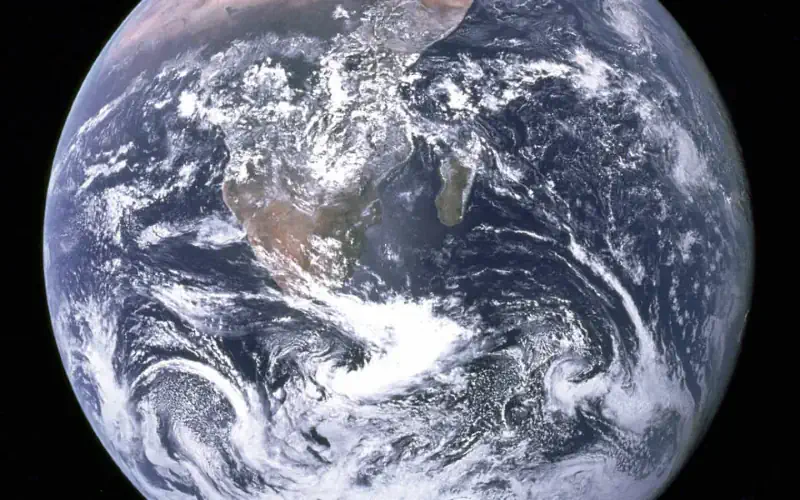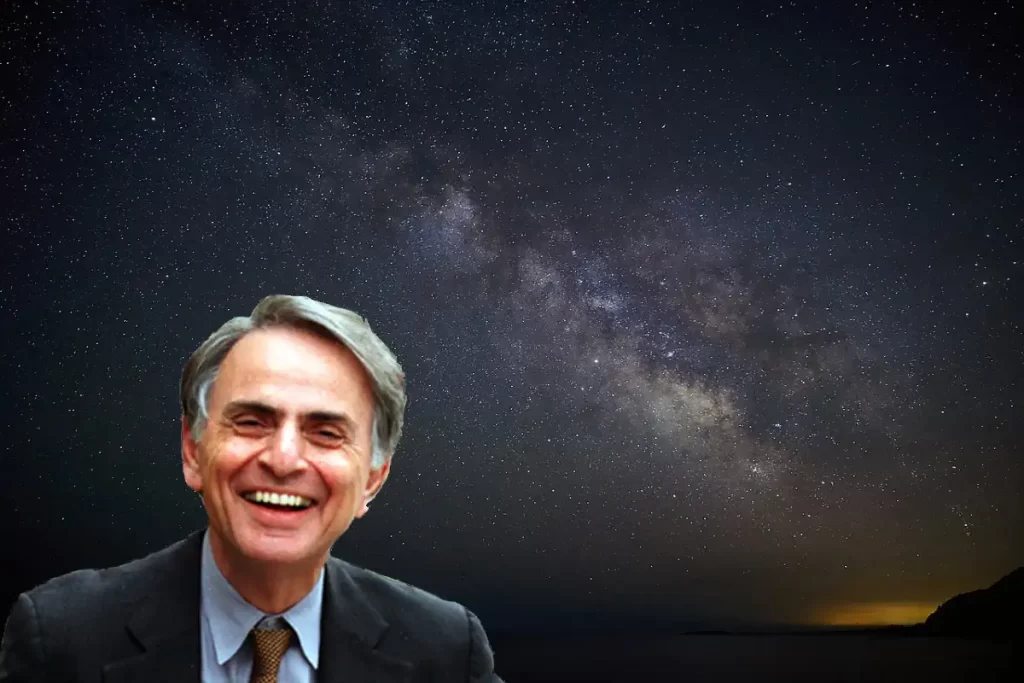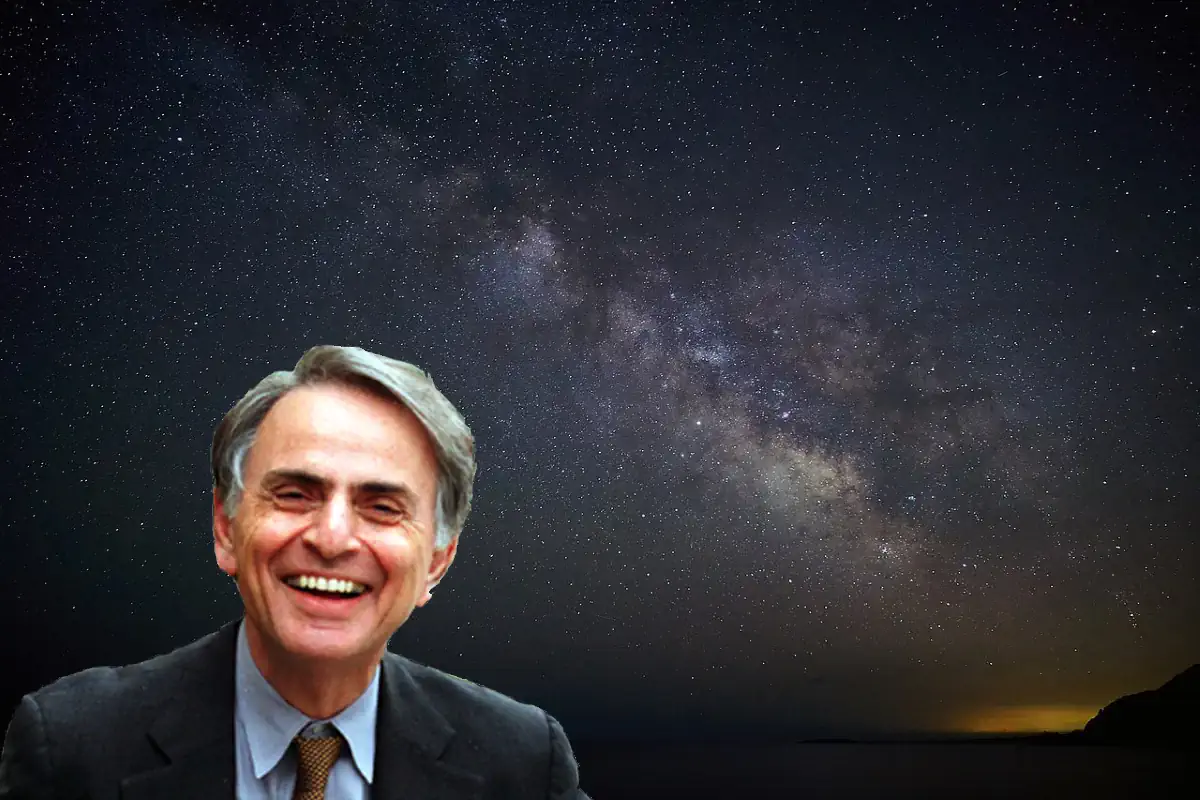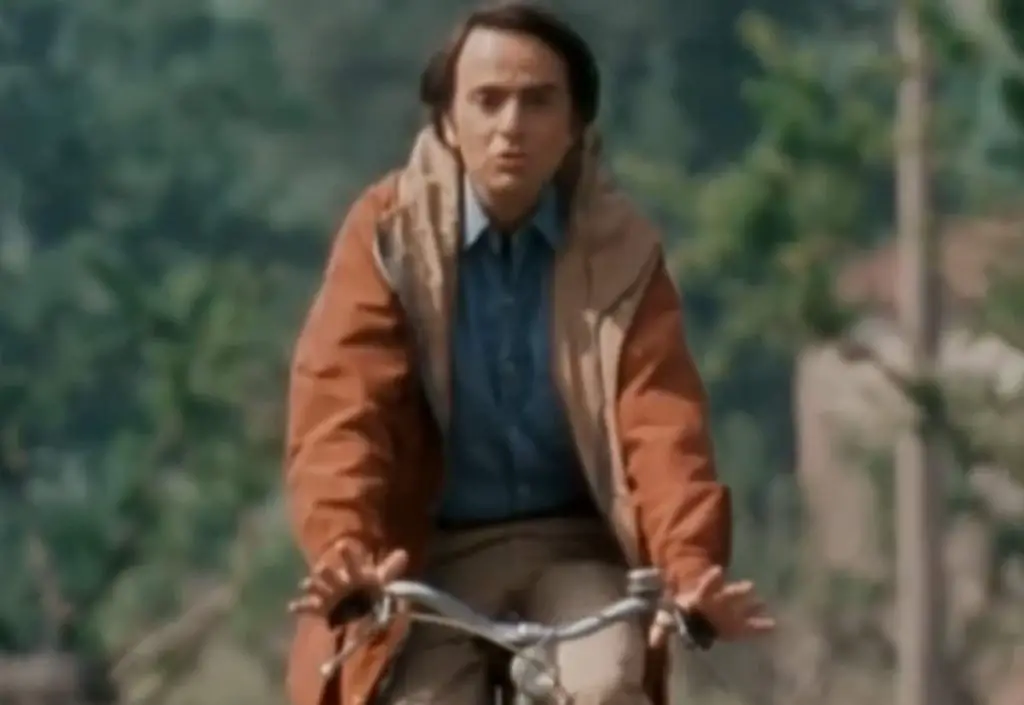Here are the top 10 Carl Sagan quotes about science, astronomy, and humanity’s place in the Universe.
“It has been said that astronomy is a humbling and character-building experience. There is perhaps no better demonstration of the folly of human conceits than this distant image of our tiny world. To me, it underscores our responsibility to deal more kindly with one another and to preserve and cherish the pale blue dot, the only home we’ve ever known.”
Carl Sagan, Pale Blue Dot: A Vision of the Human Future in Space
“For me, it is far better to grasp the Universe as it really is than to persist in delusion, however satisfying and reassuring.”
Carl Sagan, The Demon-Haunted World: Science as a Candle in the Dark
“Extraordinary claims require extraordinary evidence.”
The Sagan standard. He used the exact phrase on his television program Cosmos: A Personal Voyage.
“The cosmos is within us. We are made of star-stuff. We are a way for the universe to know itself.”
Carl Sagan, Cosmos: A Personal Voyage
“At the heart of science is an essential balance between two seemingly contradictory attitudes – an openness to new ideas, no matter how bizarre or counterintuitive they may be, and the most ruthless skeptical scrutiny of all ideas, old and new. This is how deep truths are winnowed from deep nonsense.”
Carl Sagan, The Demon-Haunted World: Science as a Candle in the Dark

Related: Top 10 Earth quotes
“Advances in medicine and agriculture have saved vastly more lives than have been lost in all the wars in history.”
Carl Sagan, The Demon-Haunted World: Science as a Candle in the Dark
“What an astonishing thing a book is. It’s a flat object made from a tree with flexible parts on which are imprinted lots of funny dark squiggles. But one glance at it and you’re inside the mind of another person, maybe somebody dead for thousands of years. Across the millennia, an author is speaking clearly and silently inside your head, directly to you. Writing is perhaps the greatest of human inventions, binding together people who never knew each other, citizens of distant epochs. Books break the shackles of time. A book is proof that humans are capable of working magic.”
Carl Sagan, Cosmos: A Personal Voyage
Music: Ludwig van Beethoven, “Cavatina” from String Quartet in B flat major, op. 130.
“The thing about science is: it’s after the way the universe really is, and not what makes us feel good.”
From Carl Sagan’s last interview – 27 May 1996, interview with Charlie Rose, USA
“Science is more than a body of knowledge. It’s a way of thinking.”
From Carl Sagan’s last interview – 27 May 1996, interview with Charlie Rose, USA
And, finally, the most famous Carl Sagan quote:
Consider again that dot [Earth]. That’s here. That’s home. That’s us. On it everyone you love, everyone you know, everyone you ever heard of, every human being who ever was, lived out their lives. The aggregate of our joy and suffering, thousands of confident religions, ideologies, and economic doctrines, every hunter and forager, every hero and coward, every creator and destroyer of civilization, every king and peasant, every young couple in love, every mother and father, hopeful child, inventor, and explorer, every teacher of morals, every corrupt politician, every “superstar,” every “supreme leader,” every saint and sinner in the history of our species lived there – on a mote of dust suspended in a sunbeam.
Carl Sagan, Pale Blue Dot: A Vision of the Human Future in Space
Carl Sagan

Carl Sagan (November 9, 1934 – December 20, 1996) pioneered astrobiology and the search for extraterrestrial intelligence (SETI). He was a professor and laboratory director at Cornell University and has contributed to most of the uncrewed space missions that have explored our solar system.
His idea was to attach a peaceful message of humanity to a spaceship that could be understood by extraterrestrial intelligence. He reached that goal with the Pioneer plaques on the two interstellar space probes Pioneer 10 and Pioneer 11 and with the Voyager Golden Record on the Voyager 1 and Voyager 2 space probes.
Sagan wrote and hosted the thirteen-episode television series Cosmos: A Personal Voyage which received two Emmy Awards, the Peabody Award, and the Hugo Award.
Sagan also wrote popular science books such as The Dragons of Eden, for which he was awarded the Pulitzer Prize for General Nonfiction in 1978, and the science-fiction novel Contact, which was adapted into a film with the same name in 1997 with Jodie Foster playing the leading role.
Sagan was chief technology officer of the professional planetary research journal Icarus for 12 years. He co-founded The Planetary Society and was a member of the SETI Institute Board of Trustees. Sagan served as Chairman of the Division for Planetary Science of the American Astronomical Society, as President of the Planetology Section of the American Geophysical Union, and as Chairman of the Astronomy Section of the American Association for the Advancement of Science (AAAS).
Sources
- Carl Sagan on Wikipedia
- “Why Carl Sagan is Truly Irreplaceable” on the Smithsonian website
- Carl Sagan quotes on Good Reads
- Space Shuttle Endeavour’s Touchdown Meets Columbia’s Salute [An amazing photo from the past] - February 29, 2024
- Moon Landings: All-Time List [1966-2024] - February 23, 2024
- From Orbit to Ordinary: 10 Earthly Applications of Space Technology - January 23, 2024

